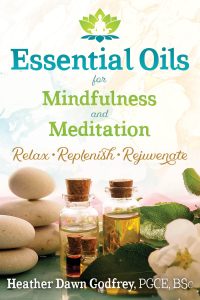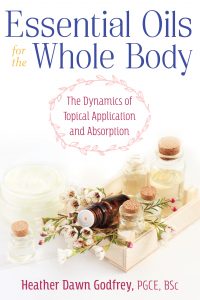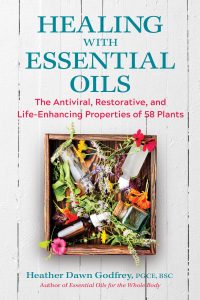- info@aromantique.co.uk
- 07419 777 451

The inspiration comes from within, but it is enhanced and clarified in many ways. My subject inspires me. My students and clients inspire me. The process of being a therapist and author inspires me. My sense of gratefulness inspires me. Writing itself inspires me. Sometimes I feel as though the words, the images, the inspiration filters ‘through me’, not from me…. perhaps this is an expression my higher self dancing with my physical self. My primary inspiration comes from the passion I feel for the subject I write about and my desire to share what I have learned – to help others as I have been helped and supported too, to grow and aspire.
How do I get into the ‘zone’ to write? No matter how inspired I may feel, I cannot always write ‘to order’. I find it hard to instantly switch from one mode to another when I am working creatively. If it’s a practical task, this is not so difficult; I just get on with it. But writing requires something deeper, more considered. I have to ‘get in touch’, I have to connect with a deeper part of my self and psyche…be in a place where I am completely open and honest, where I can hear my inner voice. To do this I need to step back from the ‘hum drum’; I need space and time to ‘go with the flow’. It can take a couple of days, sometimes, to switch off from other things and to focus, and then sometimes even longer for insights, thoughts, feelings, understanding, to manifest in a tangible form. I make lots of notes. I step back, and then return to my notes with a fresh perspective. Writing is a process with many layers. I can start with an idea, with a purpose, then I find the very act of writing, putting things onto paper, (or computer screen), acts as yet another catalyst that evokes deeper consideration…what I start off with begins to grow and develop as I bring it into the light. So, writers need time, space, peace…and self discipline….and material security…a fertile garden bed where seeds of thought and imagination, idea and understanding, can manifest and bloom….
Follow your passion. Don’t allow others to put you off. Be realistic. Plan your process. Set aside time. Give yourself a target timescale, a time-line framework, within which to complete your task; create a list of ‘steps and stages’; set reasonable goals and targets. Integrate time within your writing plan that allows you space to step aside, then return to your work. Ensure you can fund yourself without pressure. Balance is key! Run your ideas by others you trust, observe their response(s). Find objective proof readers (not just friends and family). Aim to finish your manuscript well before your deadline, so that you can put it aside, then return to it with a fresh, critical view (it’s so easy to become ‘word blind’ when engrossed in the content, the story). Read and correct your work several times before handing it to a publisher. Engage a proof-reader to scan
your work before you submit your final draft (at this stage, you will have already proof-read your work  yourself, and, no doubt, will have ‘run your work by’ others to check for oversights etc.) – select one person you trust. Learn to accept constructive criticism; don’t be too ‘precious’ about your work but, equally, stand your ground if necessary too. Allow yourself to learn from the process. Decide who you are writing for. Hold an image of the ‘person’ you are aiming your work at (audience…but it is better to think in terms of ‘a person’ rather than lots of people, it’s less scary and helps you to develop a relationship with them so you write with comfort…..I write to my future self when writing about practical topics, to remind myself of details I might have forgotten through the passage of time). Research your publishing options before you begin to write – there are pro’s and con’s to both self publishing and working with a professional publishing company – which route will benefit your work the best, what is the standard criteria/expectation for presenting your manuscript? In both instances, engaging the right support is crucial….don’t expect to do everything yourself…employ the expertise of others to ensure your finished product is professionally presented and the best that it can be. Don’t aim for perfection, but do everything to the best of your ability. Do not expect to make lots of money. Plan your process carefully and with realistic awareness so that you will enjoy every step of the way…..the journey is as significant and important as arriving at your destination.
yourself, and, no doubt, will have ‘run your work by’ others to check for oversights etc.) – select one person you trust. Learn to accept constructive criticism; don’t be too ‘precious’ about your work but, equally, stand your ground if necessary too. Allow yourself to learn from the process. Decide who you are writing for. Hold an image of the ‘person’ you are aiming your work at (audience…but it is better to think in terms of ‘a person’ rather than lots of people, it’s less scary and helps you to develop a relationship with them so you write with comfort…..I write to my future self when writing about practical topics, to remind myself of details I might have forgotten through the passage of time). Research your publishing options before you begin to write – there are pro’s and con’s to both self publishing and working with a professional publishing company – which route will benefit your work the best, what is the standard criteria/expectation for presenting your manuscript? In both instances, engaging the right support is crucial….don’t expect to do everything yourself…employ the expertise of others to ensure your finished product is professionally presented and the best that it can be. Don’t aim for perfection, but do everything to the best of your ability. Do not expect to make lots of money. Plan your process carefully and with realistic awareness so that you will enjoy every step of the way…..the journey is as significant and important as arriving at your destination.
How do you deal with writers block?
This is a very good question because it is a common phenomenon.
 The first thing is, don’t panic. The second (and here I slip into a British cliche), put the kettle on and make a nice up of tea (or coffee).
The first thing is, don’t panic. The second (and here I slip into a British cliche), put the kettle on and make a nice up of tea (or coffee).
The point is, you can’t fight ‘writers block’; you have to befriend it, acknowledge it, sometimes just ‘sit with it’.
Writing, whether fiction or fact, is a creative process and, as with all creative endeavours, it cannot be forced. Creativity expresses itself best when it flows from the depths of our being; paradoxically, from a place of inspiration that is more than just mental construct or words.
Our mind and imagination are wonderful tools – brushes, paints, pallet and paper – but the seeds of vision stir in the wordless, formless, depths of, dare I say, the artists soul (we are all artists). The inspiration we feel within sometimes has to find form before it can emerge and tangibly manifest. Sometimes this form is readily available and our work flows effortlessly from within to without. Sometimes, though, it is illusive, not immediately available, and we ponder; we cannot force it into form until it is ready to emerge….so we wait, patiently, unconditionally.
The best thing to do with ‘writers block’ is to trust the process, stand aside and let it be. Go for a walk, take a break, bake a cake, clean the car, meditate, whatever; distraction, used consciously, is a useful tool too, it eases the pressure, the intensity, thus allowing the formless to find form organically….but, keep a note pad with you so you can capture your words, impressions and images as they emerge, in their own time… while you go about intentionally ‘doing other things’.
break, bake a cake, clean the car, meditate, whatever; distraction, used consciously, is a useful tool too, it eases the pressure, the intensity, thus allowing the formless to find form organically….but, keep a note pad with you so you can capture your words, impressions and images as they emerge, in their own time… while you go about intentionally ‘doing other things’.
What’s the best thing about being a writer?
Being able to do something I love. I am very grateful to be in a position where I can find the time to devote to writing. I love words, their meaning, their colour, their resonance. I love painting pictures and creating images with words. I love the expression, the language of communication, of connecting, from soul to soul, awareness to awareness, person to person. I find writing to be a therapeutic process. I have always kept journals. Writing causes me to search for exactly ‘what I mean’, to be aware of the words I select, to stop and ponder, to reflect more deeply. As well as a form of expression, words, in this sense, also act as a mirror; the words I spontaneously select reveal my shadow self too. What’s the best thing about being a writer? Applying words as vehicles to convey meaning and expression, being able to communicate from my soul to your soul, to dispel any sense of isolation, to share wisdom and knowledge. The privilege of being a writer is the best thing.

Publications:
Essential Oils for Mindfulness and Meditation (Inner Traditions, Bear & Co., Vermont USA)

Essential Oils for the Whole Body (Inner Traditions, Bear & Co., Vermont USA)

Healing with Essential Oils (Inner Traditions, Bear and Co., Vermont USA)
